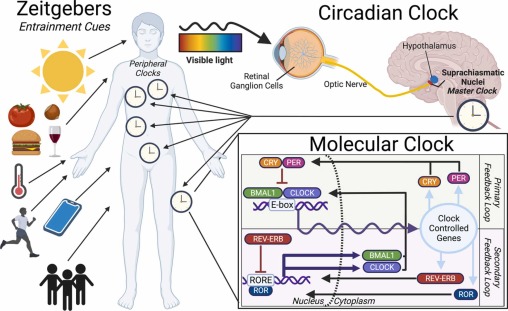Research

AREAS OF INTEREST
Circadian Clock, Shift work, Genotoxic Stress, Cancer, DNA Repair, Chronotherapy, Toxicology
RESEARCH SCOPE
Every cell in the body has a circadian clock that regulates biochemical and cellular processes such as sleep, body temperature, metabolism, hormone levels, and physiology. Human and mouse models suggest that approximately 50% of protein-coding genes display circadian rhythmicity at the transcriptional level. There are more than 170 drug targets among these clock-controlled genes, some of which are acted on by 56 of the top 100 best-selling drugs in the US. There is a high correlation between the advent of circadian disruption through shift work and the development of several cancer types as per the data accumulated from animal experimental studies and human epidemiological studies. There is no concrete evidence reported, however, at the cellular and molecular levels for humans.
RESEARCH FOCUS
Using the cell- and molecular biology approaches with mammalian cell culture, genetic mouse models, and human tissue biopsies, the Gaddameedhi Lab investigates the following research questions:
- How do gene-environment interactions mediate environmental health outcomes through the circadian clock?
- What are the biological mechanisms regulating cardiotoxicity and carcinogenesis via circadian disruption?
- What are the molecular interactions between the circadian clock and emerging environmental contaminants (e.g. endocrine-disrupting chemicals) and how do these interactions impact environmental disease outcomes such as cardiovascular disorders and cancers?
- What is the molecular basis of the circadian clock’s role in the improved therapeutic efficacy against cancers and cardiotoxicity in cancer patients?
Overall, research from the Gaddameedhi lab provides a mechanistic understanding of the biological clock’s role in ‘gene-environment’ interactions and its impact on environmental disease prevention, toxicant exposures, and therapeutic efficacy.